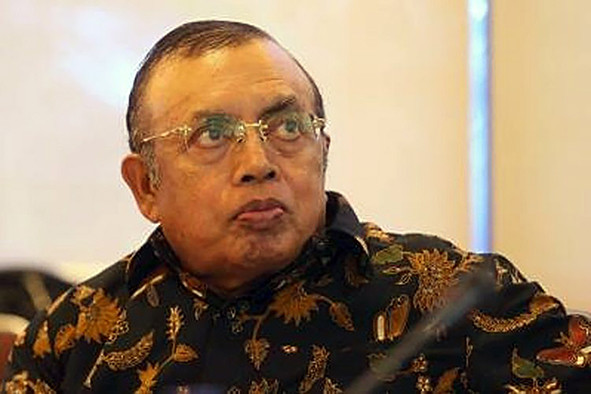Popular Reads
Top Results
Can't find what you're looking for?
View all search resultsPopular Reads
Top Results
Can't find what you're looking for?
View all search resultsIn memoriam: Daniel Dhakidae, an intellectual force of nature
The fact that we came from different generations did not hinder us from appreciating a similar sense of irony, born of having to navigate through the absurdities of intellectual life in New Order Indonesia.
Change text size
Gift Premium Articles
to Anyone
D
aniel Dhakidae, a giant within Indonesia’s intellectual community, passed away in Jakarta of a heart attack on April 6. In his prime, Daniel was a force of nature who seemed able to put things into place by sheer will, even if some – mostly those he thought incompetent – would have to suffer his wrath. Fortunately, he seemed to adjudge me as competent, and so I only had the pleasure of his good humor and sharp wit for the nearly 35 years that I knew and worked with him.
Daniel was born in Flores in 1945 – he would always highlight the year when speaking of his age – and thus there was nearly a 20-year difference between us. But in many ways, we were both shaped by the experience of having to initially undertake intellectual work in the context of the authoritarian New Order regime. Of course, we were shaped by it in different ways.
His “natural” milieu were the intellectuals who had come together in the 1960s and 1970s, originally supportive, if only ambiguously, of the New Order’s modernization project but who came to disdain its repression, corruption and imbecilic – and therefore intellectually insulting – propaganda. I was too young to have been part of the student protests of the 1970s but was shaped by involvement in the (often more peripheralized and, therefore, more radical) small student and NGO groupings of the next decade.
We first came together when I took up various roles within LP3ES in the mid and late 1980s. The publisher of the journal Prisma, which was in its heyday a powerhouse academic and intellectual publication, LP3ES was one of the big NGOs of the New Order period. It was simultaneously respected and suspect in the eyes of younger activists because it often had to compromise with the Soeharto government to ensure its own survival.
Daniel was always aware of the inherent irony of being associated with such an organization, one that banked its credibility on being a critical voice but which also had to carefully present itself as unthreatening to the government. The fact that we came from different generations did not hinder us from appreciating a similar sense of irony, born of having to navigate through the absurdities of intellectual life in New Order Indonesia.
When I joined, Daniel already enjoyed near-legendary status in LP3ES as a former chief editor of Prisma during its halcyon days in the late 1970s and early 1980s. I never worked under him there but was told that he ran the journal with a combination of astute judgement and perseverance – and, occasionally, by banging on tables. I was always fairly sure, though, that he would have been banging on tables with a slight grin on his face, realizing the silliness of whatever mistake someone had made.
He became somewhat bored of the rather claustrophobic world of the Jakarta intelligentsia and decided to take up post-graduate work at Cornell with the support of no less than Benedict Anderson, obtaining his PhD in 1991. I would often meet him while he was working on his dissertation in the modest Prisma office on Jl. S. Parman in West Jakarta, usually transcribing interviews he had conducted during his long period of fieldwork.
He would “borrow” one of the Prisma computers for most of the day, sometimes leaving me without my means of production. I wondered whether this was because he was so diligent or – as I often joked with him – because he had trouble figuring out how the computer worked. Computers were fairly new in Jakarta offices at the time.
Luckily, these technical difficulties were soon overcome, and Daniel produced a PhD thesis titled “The State, the Rise of Capital, and the Fall of Political Journalism in Indonesia”, which was widely praised. He would go on to author very large books addressing the theme of intellectuals and power and co-edit one with me called Social Science and Power in Indonesia in 2005. A major thread linking his thesis and subsequent work was how knowledge and information production was determined by the nexus of state power and the imperatives of capital.
He also worked with Kompas as head of its R&D division for a dozen years.
Daniel failed at becoming a priest in Flores – he always told me that he was run out of his seminary – though the reasons seemed to always change. But he was successful as an intellectual and through vehicles like Prisma, which he revived with grit and determination in 2009, was instrumental in “bringing up” newer generations of intellectuals.
He reveled in being from a small island in Eastern Indonesia, in attending a “provincial” university (though that was Gadjah Mada University) and one in “upstate New York” (though that was Cornell). But few Indonesian intellectuals have displayed the kind of cosmopolitan intelligence and awareness that he wore so effortlessly and gracefully.
***
The writer is Director of the Asia Institute at the University of Melbourne










